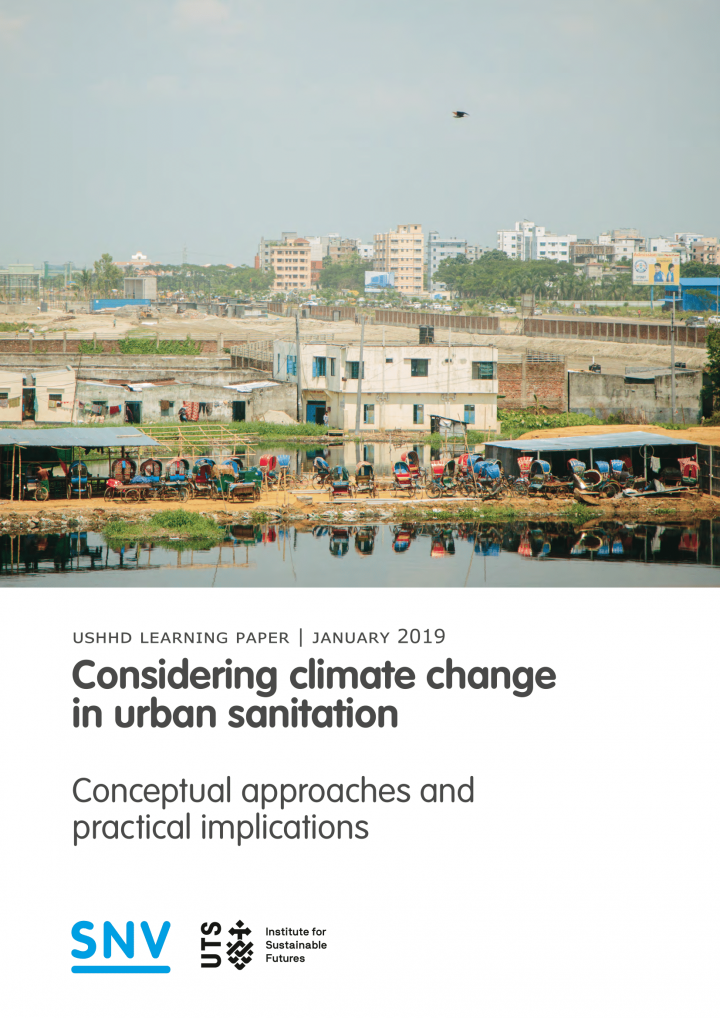Considering climate change in urban sanitation: Conceptual approaches and practical implications ISF-UTS and SNV (2019)
This paper presents a comprehensive conceptualisation of how climate change could be considered in urban sanitation policy and programming.
Given the urban sanitation crisis facing many cities in developing countries, consideration of climate change can seem like an unwanted distraction from the immediate problems at hand (Bartram, et al., 2017). Climate hazards are often perceived as secondary to the urgency of establishing functioning urban sanitation systems. However, many of the deficiencies in sanitation services also limit cities’ resilience to disasters and present climate variability (the “adaptation deficit”), as well as to more extensive and long-term climate change (World Bank, 2010).
As global warming continues to exacerbate weather variability and push climate extremes to new limits, it is likely that climate hazards will increasingly require proactive planning for sustainable sanitation services. In addition, if we hope to improve sanitation services, it is vital that today’s investments in systems and service models must remain appropriate in a changing climate, and not tie up future funding in avoidable repairs and replacements. The global drive and funding to address climate change also provides an opportunity to push improvements in the resilience and sustainability of sanitation systems. Moreover, recognition of the interconnections between sanitation and other urban systems can help prioritise sanitation improvements that achieve multiple goals.
Authors: Mills, F., Kohlitz, J., Carrad, N., Willetts, J.
Bibliographic information
ISF-UTS and SNV (2019). Considering climate change in urban sanitation: Conceptual approaches and practical implications Considering climate change in urban sanitation: conceptual approaches and practical implications. The Hague: SNV
Filter / Tags
Renewable energies and climate change (WG3)Urban (entire city)EnglishClimate Resilient Sanitation
Downloads
Considering climate change in urban sanitation: conceptual approaches and practical implications
Type: application/pdf
Size: 1.1 MB

